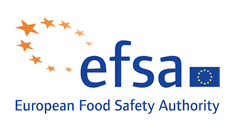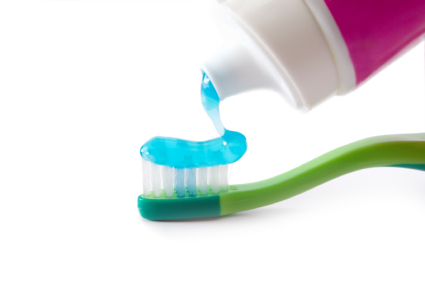ANH Press Release
ANH CALLS FOR URGENT INDEPENDENT INQUIRY INTO THE WORK OF EUROPE’S FOOD SAFETY AUTHORITY

After it clears toothpaste toxin for use in food supplements
[Download PDF version]
The Alliance for Natural Health (ANH) calls today for an urgent independent inquiry into the scientific methods used by Europe’s highest authority on food safety, the European Food Safety Authority (EFSA). This call comes on the back of the ANH’s highly critical analysis, published on its website today, of EFSA’s decision to approve for food supplement use the chemical sodium monofluorophosphate, the same chemical commonly added to toothpaste and mouth washes to prevent or treat tooth decay.
The ANH has simultaneously released an equally indicting, independent commentary on EFSA’s opinion by Professor Vyvyan Howard of the University of Ulster, an internationally acknowledged expert in risk assessment of chemicals in the environment.
Dr Robert Verkerk, executive and scientific director of the ANH stated, “How can the people of Europe have any confidence in EFSA’s decisions when the methods it uses seem to be more about political number shuffling than proper science? EFSA shouldn’t be surprised by this criticism—we’ve been outlining the many problems with its approach for over 3 years via public consultations. Yet we’ve not had one government authority ever come back to us to discuss our scientific concerns. We’re ready to send a team of scientists to Parma to dialogue with EFSA at any time—they need only ask.”
The ANH’s call for an independent inquiry has come just a week after Dr Verkerk presented a petition on behalf of the Irish Association of Health Stores in the European Parliament which claims that bad science used by European regulators could result in the closure of at least half the health stores in Ireland. On the basis of the arguments presented, the chairman of the Petitions Committee of the European Parliament agreed on 19th January to keep the petition open and refer it to the Parliament’s Environment, Public Health and Food Safety Committee.
Medical director of the ANH, Dr Damien Downing, an internationally recognised expert on the effects of environmental chemicals on health said, “It’s bad enough brushing your teeth or rinsing your mouth with fluoride. But opening up its usage to food supplements when it’s very difficult to control how much other fluoride a person is being exposed to, especially in countries like Ireland and the UK where the public drinking water supplies might be fluoridated, is utterly irresponsible.”
From a legal perspective, ANH’s legal director Robert Collins asserted: “Dental caries, or tooth decay, is without question a recognised disease. The clear intention of the two petitioners responsible for dossiers on sodium monofluorophosphate is that the chemical be used for the treatment or prevention of dental caries. As this use is clearly medicinal, its evaluation should be undertaken by the European Medicines Agency in an application for a drug. This is simply not within EFSA’s legal remit.”
Referring to the searing criticism of non-transparency of the European Commission’s approach to approving ingredients in food supplements made by the Advocate-General in the ANH’s case in the ECJ in 2005, Verkerk added, ”It appears we’re well and truly back to the days of Geelhoed’s black box.”
“Despite a serious ticking off by the European Court, EFSA and the Commission are being as opaque as each other. EFSA is seemingly bending its rules to provide a required outcome,” continued Verkerk. “To do this, it’s dramatically altered the ultra-restrictive risk assessment methods it’s used on essential vitamins and minerals which it seems happy to see banned. With this fluoride opinion, it’s ignored a large of body of science which points to serious risks associated with fluoride, and it’s given it a green light even after admitting that most children taking fluoride supplements would exceed the highest safe levels set by EFSA itself”, added Dr Verkerk.
The European Court of Justice’s ruling on the ANH’s case, heard in July 2005, made it clear that any decision to accept or reject a nutrient for use in food supplements needed to be based on a ‘full assessment of the risk posed to public health by the substance, established on the basis of the most reliable scientific data available and the most recent results of international research.’
Robert Collins stated: “This is one of the most extreme examples we’ve yet seen of both bad science and bad law. EFSA’s work is a mess and, in the public interest, an independent review of EFSA’s risk assessment work is urgently needed.”
ENDS./
FOR FURTHER INFORMATION, PLEASE CONTACT:
ANH Administrator, Tel: +44 (0)1306 646 600,
Email: [email protected]
The Alliance for Natural Health, The Atrium, Curtis Road, Dorking,
Surrey RH4 1XA, United Kingdom
NOTES TO THE EDITOR
Commentary by the ANH on EFSA opinion on sodium monofluorophosphate:
/resources/documents/090126_anh_efsa-sodium-monofluorophosphate-opinion/
Commentary by Professor Vyvyan Howard on EFSA opinion on sodium monofluorophosphate:
/resources/documents/090123-commentary-prof-vyvyan-howard-efsa-smp-opinion/
Commentary by the ANH on EFSA opinion on calcium fluoride (“EFSA-Are You Trying to Poison Us?”)
Additional points:
1. The ANH claims that such an inquiry into EFSA’s risk assessment work is of crucial importance given that EFSA’s decisions will soon become of key significance to those among the European Union’s 500 million strong population who consume the more advanced forms of food supplements. This is because EFSA is in the process of finalising its opinions on maximum safe levels for supplements, as well as the safety or otherwise of dozens of forms of vitamins and minerals. These will either be banned or allowed in January 2010 by regulation pushed through by the European Commission.
2. The leading edge of the natural products sector is increasingly being pressurised by the broad scope of Europe’s laws on medicines, and many ingredients or dosages found in food supplements are at risk of being banned because regulators argue their usage is medicinal.
3. The ANH is concerned about apparent poor coordination between the European Commission and EFSA. For example, in February 2008, the European Commission issued a letter to the ANH, signed by its respective heads of the food law and legal units, indicating that naturally-derived tocotrienols—important components of natural vitamin E—were outside the scope of the Food Supplements Directive. As such, they were automatically approved as foods and the European Commission said there was no need for EFSA to evaluate ANH’s dossier on tocotrienols. Six months later, EFSA gave a negative opinion on another tocotrienol dossier, which many have taken to mean tocotrienols will be banned in Europe when the transition phase of the Food Supplements Directive expires at the end of 2009.
4. EFSA has gone beyond its legal remit not only by ignoring a very significant body of science on fluoride’s risk, but also by appearing to slip a medicinal product through a food supplements regime. In doing this, there is a clear benefit for the petitioners since they are able to bypass the much more expensive regime required for drug approvals. In the process, children in particular—one of the population groups most susceptible to fluoride—may be exposed to serious health risks.
About the Alliance for Natural Health
The Alliance for Natural Health (ANH) is an international, non-governmental organisation, based in the UK. It was founded in 2002, and works on behalf of consumers, medical doctors, complementary health practitioners and health-product suppliers worldwide, to protect and promote natural healthcare, using the principles of good science and good law.








Comments
your voice counts
There are currently no comments on this post.
Your voice counts
We welcome your comments and are very interested in your point of view, but we ask that you keep them relevant to the article, that they be civil and without commercial links. All comments are moderated prior to being published. We reserve the right to edit or not publish comments that we consider abusive or offensive.
There is extra content here from a third party provider. You will be unable to see this content unless you agree to allow Content Cookies. Cookie Preferences